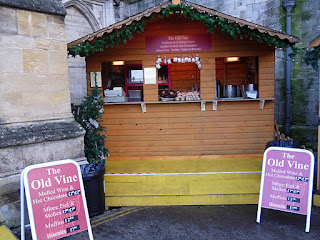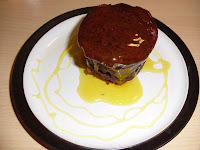Philosophers Descartes, Spinoza and Leibniz are all rationalists. They believe our knowledge comes through reason, meaning that our rational minds can think and use intellect to prove facts and logically make sense of things. This contrasts empiricists who believe our knowledge purely comes from our senses.
Descartes
Rene Descartes was a French philosopher who is classed as the Father of Modern Philosophy. He is also a man of science, discovering refraction and reflection and of mathematics as he invented co-ordinates and powers. All of which I am sure you have come across during your GCSEs.
Descartes is most famous for his method on Cartesian Doubt. The purpose of this method is to use doubt and scepticism in order to find knowledge that you could be certain was true. Knowledge in Cartesian sense is to know something beyond all possible doubt, therefore by removing all beliefs which you could doubt, would leave you with beliefs that you could trust. Descartes held that you could not trust your senses, or your imagination as there is no way to prove that your sensory experience is not a hallucination or a dream. He believes that at any moment we could be dreaming and that our senses could be controlled by an evil demon that is deceiving you. This demon could have created a superficial world in which we all live in. However, one thing is for certain that no demon could deceive you if you didn’t exist, this could be summed up in a syllogism:
Whatever thinks exists
I think
Therefore I exist
This leads on to Descartes memorable line “cogito ergo sum”, known as “I think therefore I am”. This implies that mind is more certain then matter. Descartes doubted his own experience but realised he would not be able to doubt if he didn’t exist. A general rule that Descartes adopts is “all things that we conceive very clearly and very distinctly are true.”
Another doctrine which Descartes discusses in his book ‘Meditations’ is Dualism; this comes from the Latin word duo, meaning two. It is the relationship between mind and matter; however Cartesian Dualism contains three realms: mind/soul, matter and God. God is an uncreated substance, whereas mind and matter are created substances. Another form of dualism is substance dualism which Descartes supports as he believes that there are two kinds of substances: mental substance being the mind, and material substance being the body. Descartes raises doubts about everything except his mind, he could even doubt whether he had a body because he believes he could have been dreaming about it. This was the starting point to his realisation that the mind was one thing and the body another. He argued that only humans have minds, in Russell’s book it states that Descartes regarded animals as “automata” meaning a mechanical device that were “governed entirely by the laws of physics, and devoid of feeling or consciousness”. However men are different and they have a soul, using ‘reason’ Descartes worked out that the soul is located in the Pineal gland in the brain. The mind interacts with the body at the pineal gland; this form of dualism proposes that the mind controls the body.
In order to emphasise upon the perception that our senses cannot be trusted, Descartes demonstrates this through the wax argument. He uses a piece of wax to explain that there are certain attributes such as the taste, smell, shape, size, colour and hardness which are obvious to the senses, but if you put it next to a fire it will melt and these qualities will change. Although our knowledge tells us that the soft piece of wax is the same as the hard piece of wax, our senses do not tell us that the wax itself is a form of extension flexibility and motion. This can be understood by the mind not our imagination. Quoted from Russell’s book: “I understand the sole power of judgment, which resides in my mind, what I thought I saw with my eyes’, this means that what you think you can see with your eyes is actually understood by judgement which is in your mind rather then your senses. Knowledge of external things must be by the mind and not by the senses, this leads on to the different kinds of ideas:
a) Those that are innate
b) Those that are foreign and come from without
c) Those that are invented by me
The ontological argument is proof for the existence of God, it depends upon the distinction between existence and essence, yet Descartes argues that there is no such distinction with God. Once you understand God’s essence you will understand his existence. Descartes suggests that God is a perfect being, and His existence can be worked out from his nature, similarly to how the angles of a triangle can be worked out from its geometric nature.
Spinoza
Spinoza was a Dutch philosopher; he wrote a famous book called ‘Ethics’ whereby he rejects Descartes theory of dualism. Spinoza theory of monism holds that god is infinite, and nothing is separate from god; he regards God and Nature as two names for the same substance. Descartes believed that these were separate substances; however, Spinoza argues that there is only one substance, and everything that exists in reality is part of this substance. Spinoza is against the belief of free will, as he believes human being is not a separate reality as we are all aspects of god. God is nature and people are therefore part of God. This means that everything that happens is simply a manifestation of God, apart from sin and evil.
Spinoza’s political theory comes from Hobbes, he holds that in a state of nature there is no right or wrong, as if you do wrong you are disobeying the law. ‘Russell’ states that He agrees with Hobbes in terms that the sovereign can do no wrong, but disagrees in thinking that a democracy is the most ‘natural form’ of government. Moreover, Spinoza holds freedom of opinion important.
Spinoza’s theory of emotions:
Spinoza does not object to all emotions, like the stoics, he only objects to those that are ‘passions’ meaning that they spring from inadequate ideas. It is these passions which make our intellectual vision unclear. In ‘Russell’s’ book it states, “He who clearly and distinctly understands himself and his emotions, loves God” this introduces the principle of the ‘Intellectual love of God’, which consists of true thought and joy at the idea of truth. Spinoza holds that all joy in true thought is part of the intellectual love of God, because it contains nothing negative, and we are taught that “God has no knowledge of evil because there is no evil to be known”. The experience of intellectual love of God occurs in the eternal part of the mind, it is entirely constant and without contraries. Those who possess it embody blessedness.
Spinoza describes the nature of emotions through the idea that freedom comes from the understanding of oneself and ones emotions. The stronger that understanding is the better your understanding of God will be. Freedom comes through acceptance that we are all modifications of god/nature. Relating back to Spinoza’s theory of one infinite substance, Spinoza teaches that our human mind is part of the infinite intellect of god, and that our mind understands God. Spinoza agrees with Socrates and Plato that all wrong action is a result of intellectual error, if a man understands his own circumstances, he will act wisely.
“Only ignorance makes us think that we can alter the future what will be will be and the future is as unalterably fixed as the past” This quote taken from Russell’s Book explains why Spinoza disapproves of hope and fear because they raise uncertainty of the future. Spinoza believes that any emotion which is to do with an event as future or as past are opposed to reason.
Leibniz
Leibniz was a German philosopher and mathematician. Similarly to Descartes and Spinoza he based his philosophy on the notion of substance. Descartes allowed three substances, god, mind and matter, Spinoza allowed God alone, and Leibniz believed in an infinite number of substances called ‘monads’. This theory was Leibniz greatest contribution to metaphysics.
Theory of Monads:
The human body is composed of monads; each monad is a soul which is immortal. There is one dominant monad in our body which allows changes in our body to occur. For example when I move my arm or leg the dominant monad follows this “instruction”. Leibniz proposes that no two monads are alike, and that every monad is a mirror of the universe. Monads are a “unit” they are expressed as ‘windowless”, which means that no two monads have a direct perceptual relation with each other.
Leibniz believed in free will which contrasts Spinoza’s view, his “principle of sufficient reason” which means that everything happens for a reason, suggests that as humans we all have a motive behind what we do.
Leibniz finalised the metaphysical proofs of God’s existence, which began with Plato and Aristotle, and was formalised by the scholastics. The ontologolical argument was rejected by St Thomas but restored by Descartes. Leibniz arguments for the existene of God are broken down into four parts:
1. The ontological argument - depending upon the distinction between existence and essence
2. The cosmological argument – This presents that everything finite has a cause and the uncaused reason of everything is God. Every particular thing in the world is ‘contingent’ meaning subject to chance, thus it could be possible for it not to exist, but relating back to his principle that everything happens for a reason, Leibniz suggests that this sufficient reason is God.
3. The argument from eternal truths - This is another form of a cosmological argument, if a reason can be given for something that exists it must exist, therefore eternal truth must exist but they can only exist as thoughts in the mind as God. An eternal truth is a statement that is always true for example 2 + 2 = 4 is always true, whereas “it is raining” is a statement that could be true or false depending on the weather.
4. The argument from the pre-established harmony – this is only valid if you accept his windowless monads. It is also expressed as the best of all possible worlds.
The doctrine of possible worlds
This theory states that any world that does not contradict the laws of logic is ‘possible’ and therefore there are infinite numbers of worlds. All of which God contemplated before creating the actual world, but as God is good he decided to create the best of all possible worlds. He considered the best to be a world which had a greater surplus of good over evil; he did not disregard evil altogether because he said that some goods can be bound up with certain evils.
Leibniz was a strong believer in logic; unfortunately he never became the founder of mathematical logic because he never published his work. His reason for this was because he continued to find evidence that Aristotle’s doctrine of syllogism was wrong, but as he had huge respect for Aristotle he chose not to believe it, and blamed himself for the errors. Leibniz most famous mathematical invention was the infinitesimal calculus which was developed with Newton also. Leibniz’s philosophy was based upon two logical laws: the law of contradiction and the law of sufficient reason; this distinguishes truth of reason from truth of fact.









